Discover the Best Herbal Tea Blends for Soothing Relaxation
Have you ever wondered about the world of herbal teas? These aromatic infusions, steeped in tradition and wellness, offer a soothing respite from our daily hustle and bustle. Let’s embark on a journey to discover the best herbal tea blends for relaxation, and the benefits they bring.
Key Takeaways
- Discover the best herbal tea blends for soothing relaxation, crafted from plants, herbs and flowers with unique flavors and health benefits.
- Herbal teas provide antioxidants & vitamins to improve heart health & reduce bad cholesterol while acting as natural remedies for common ailments.
- Create your own custom blend by selecting ingredients carefully or pair a variety of herbal teas with food at any time of day.
Understanding Herbal Teas
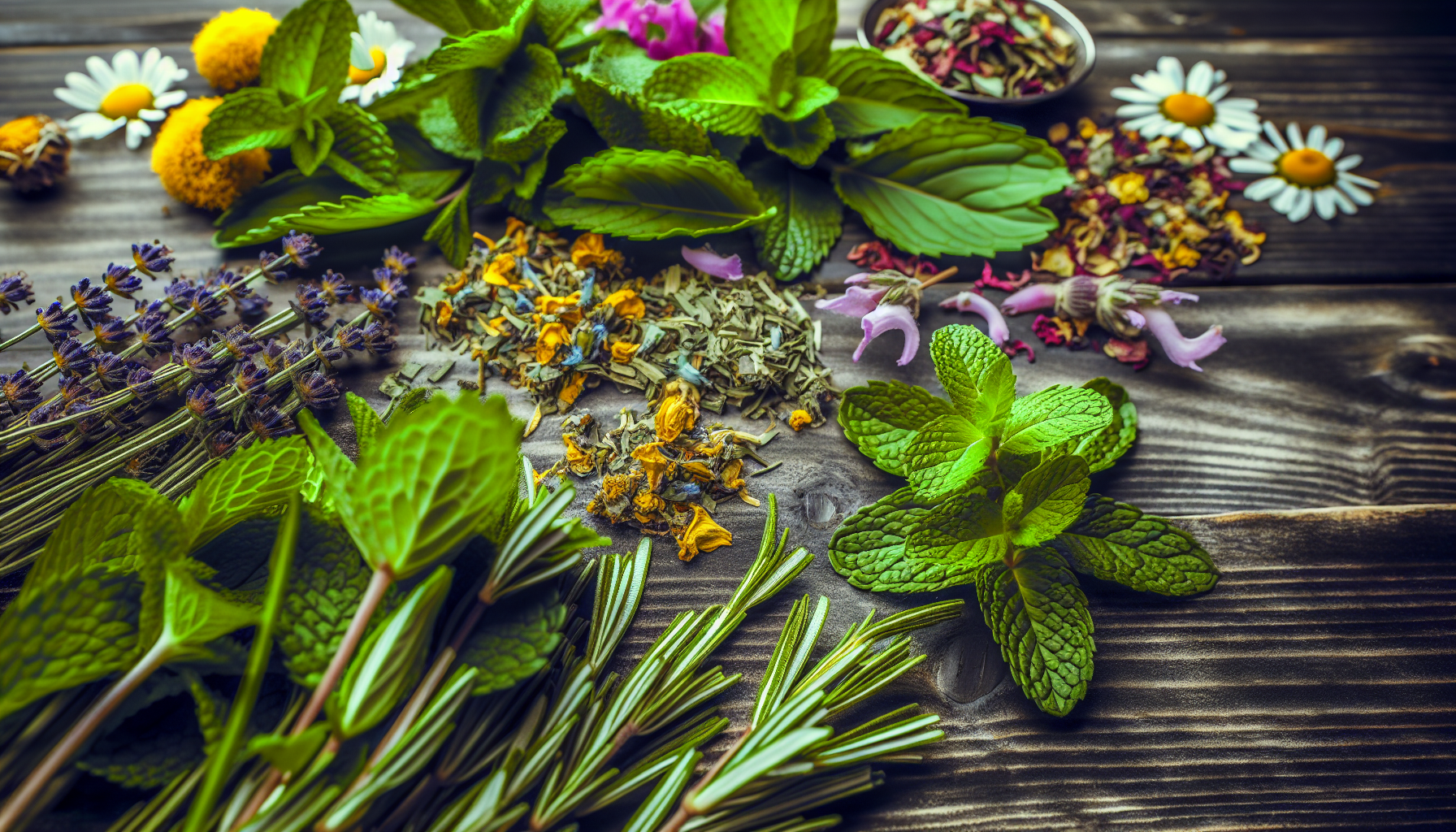
Herbal teas, distinctively crafted from various plant parts, offer a myriad of flavors and health advantages. Naturally caffeine-free, they provide the perfect respite for those seeking a break from stimulants. The history of these delightful infusions dates back to Ancient Egyptian times, long before teas made from the Camellia sinensis plant became popular.
What Makes Herbal Teas Unique
The varied ingredients, derived from an extensive range of plants, herbs, and flowers, distinguish herbal teas. The taste of mint tea, renowned for aiding digestion, or chamomile tea, recognized for its sleep-promoting properties, showcases the uniqueness of herbal infusions.
Even the subtle grassy notes of nettle tea can be transformed into a delightful experience when combined with other teas.
The Difference between Herbal Teas and True Teas
Unlike true teas derived from the Camellia sinensis plant, herbal teas are crafted from a diverse range of plants, dried fruits, flowers, spices, or herbs. While true teas contain caffeine, herbal teas are typically devoid of this stimulant. The flavor profiles are vastly different with herbal teas offering a plethora of flavors like peppermint, chamomile, and Rooibos, while true teas range from delicate to robust depending on the type and processing.
The Health Benefits of Herbal Infusions
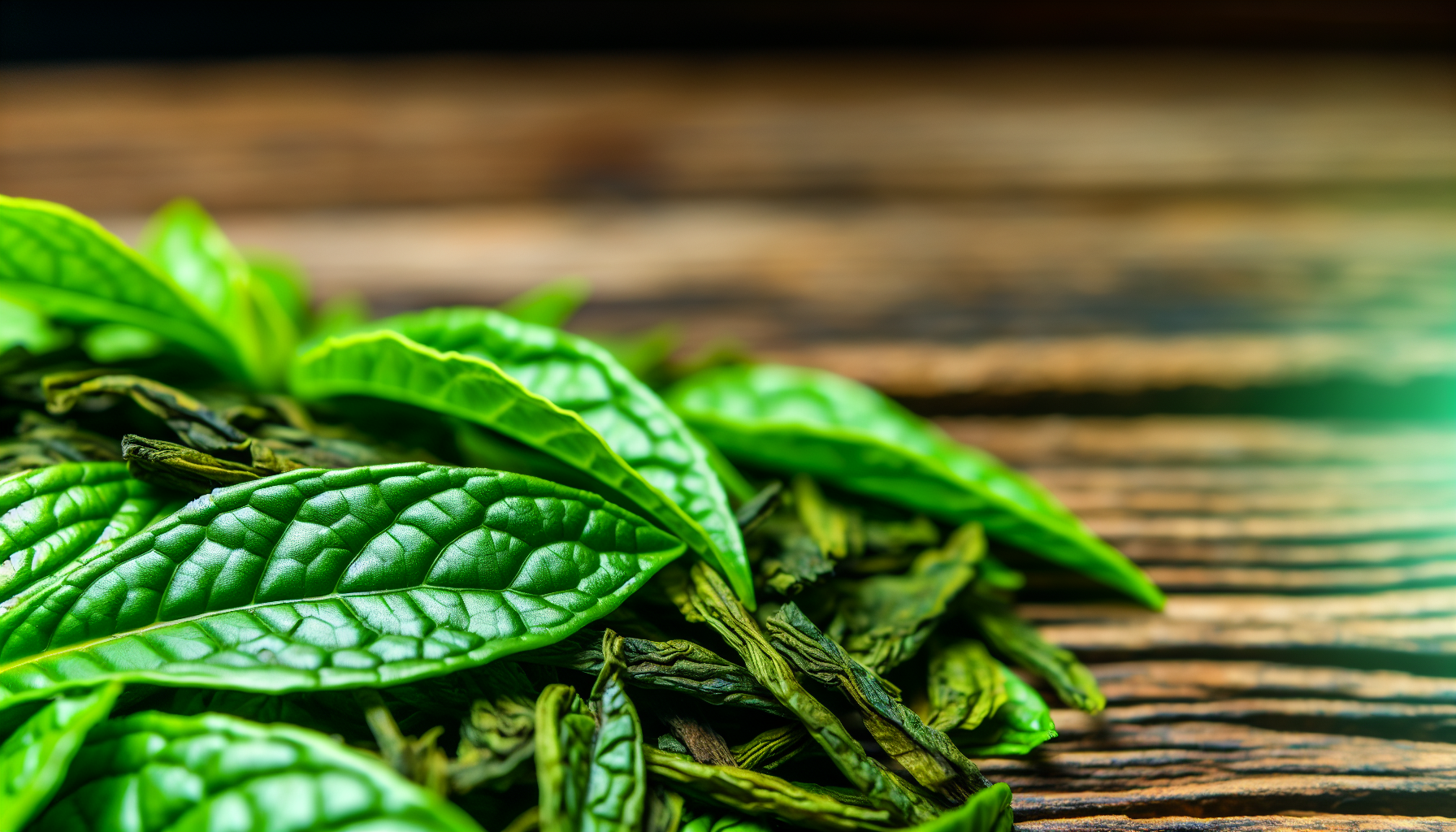
Herbal infusions offer a vast array of health benefits. From abundant antioxidants and vitamins that contribute to overall wellness, to their role as natural remedies for common ailments, these infusions are more than just a soothing beverage.
Antioxidants and Vitamins in Herbal Teas
Herbal teas are rich in antioxidants and vitamins. From gingerol in ginger tea to the phenolics in various herbal teas, these infusions are packed with health-enhancing compounds. Not only do they combat free radicals, but they also provide antioxidant and anti-cancer properties, supporting heart health by lowering bad cholesterol and reducing blood clotting.
Natural Remedies for Common Ailments
Whether it’s peppermint tea providing relief for indigestion or chamomile tea aiding in relaxation and sleep, herbal teas serve as natural remedies for a range of ailments. They have been used for centuries to alleviate health issues, demonstrating the power of nature’s pharmacy.
Popular Herbal Tea Varieties
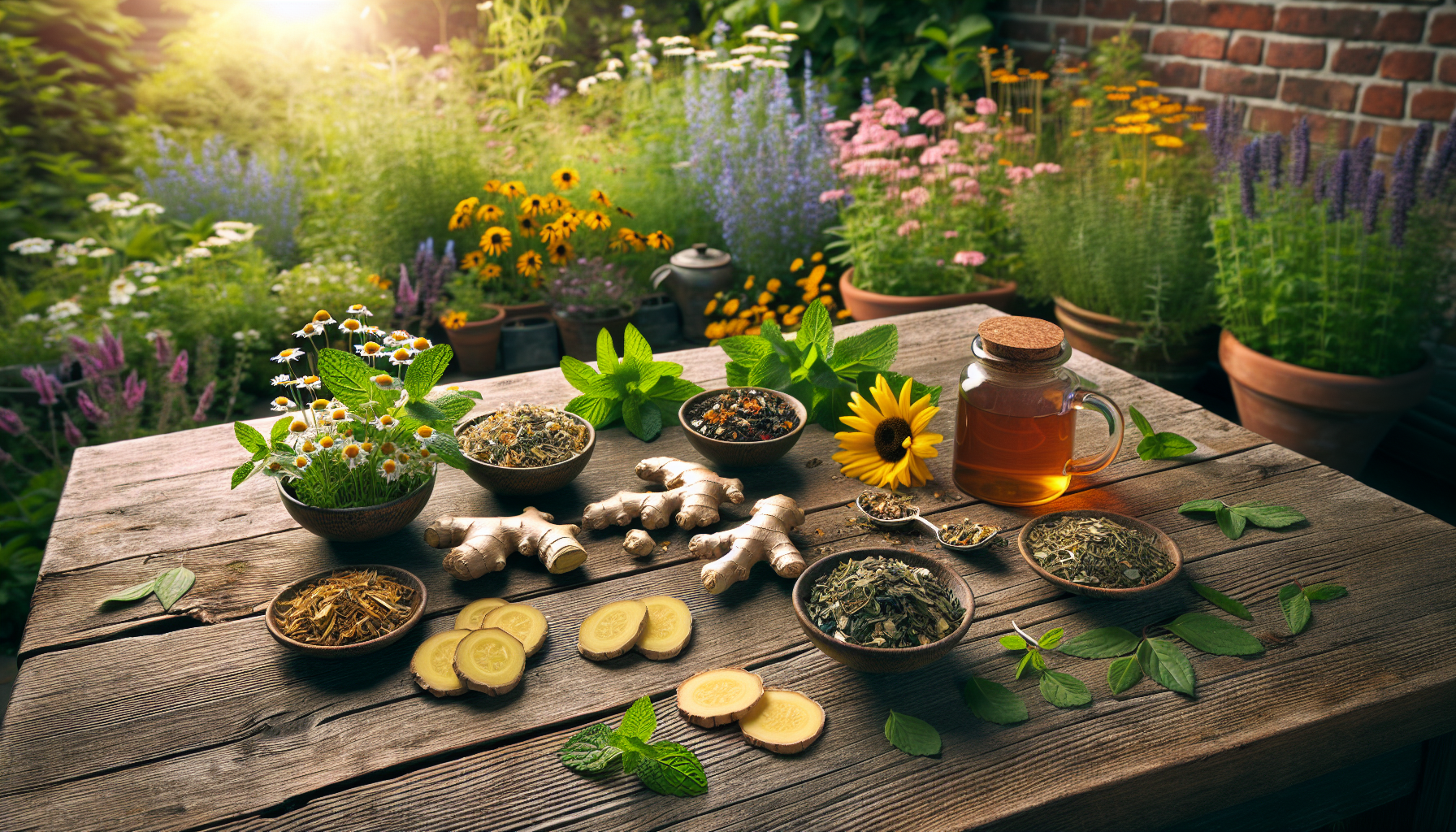
Some popular herbal tea varieties that tea enthusiasts around the world enjoy include:
- Calming chamomile
- Refreshing peppermint
- Spicy ginger
- Soothing lemon balm
Each of these teas offers unique flavors and health benefits that make them a favorite choice for many.
Calming Chamomile Tea
Chamomile tea, renowned for its calming and soothing properties, is perfect for promoting relaxation and improving sleep. The delicate, subtly sweet flavor with notes of apple and undertones of honey makes it a popular choice for a nighttime brew.
Refreshing Peppermint Tea
Peppermint tea, with its minty and refreshing taste, is widely recognized for its therapeutic properties. From enhancing digestion to alleviating tension headaches and refreshing breath, this tea offers a multitude of health benefits.
Spicy Ginger Tea
Ginger tea, with its spicy character and numerous health benefits, is a popular choice among tea enthusiasts. From supporting digestion to reducing inflammation and aiding weight management, this spicy infusion is as beneficial as it is flavorful.
Soothing Lemon Balm Tea
Lemon balm tea, known for its calming properties, promotes relaxation and helps to relieve anxiety. Its light, lemony flavor is both refreshing and comforting, making it a perfect choice for a tranquil tea experience.
Exploring Exotic Herbal Teas
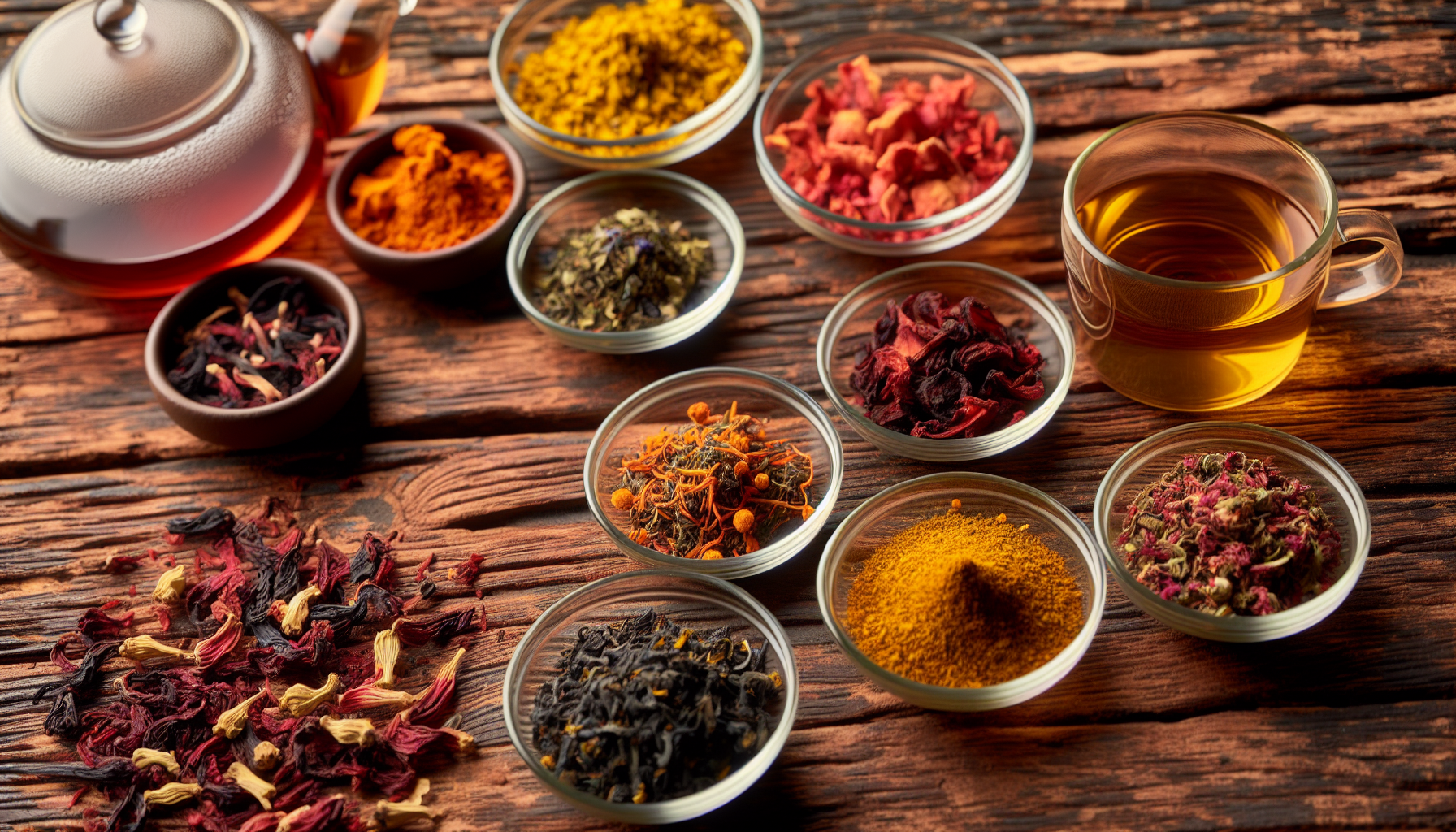
For those with a penchant for adventure, trying exotic herbal teas like tangy hibiscus, earthy turmeric, and rich rooibos can be an enjoyable experience. Each of these teas offers unique flavors and health benefits, making them a delightful addition to your tea collection.
Tangy Hibiscus Tea
Hibiscus tea, with its tangy flavor, is not just a delight for the taste buds but also offers numerous health benefits. From being rich in antioxidants to potentially aiding in blood pressure reduction and enhancing blood fat levels, this tea is as beneficial as it is flavorful.
Earthy Turmeric Tea
Turmeric tea, with its earthy flavor and anti-inflammatory properties, is a great choice for those seeking a herbal infusion with a unique taste and health benefits. Whether you’re looking to:
- relieve inflammation
- boost your immune system
- improve digestion
- reduce the risk of chronic diseases
- promote healthy skin
Turmeric tea is a worthy contender, even among popular choices like green tea.
Rich Rooibos Tea
Rooibos tea, known for its rich flavor and high antioxidant content, offers numerous health benefits. From improving heart health to aiding digestion and serving as a caffeine-free source of dietary antioxidants, this tea is a delightful way to boost your health.
How to Brew the Perfect Cup of Herbal Tea
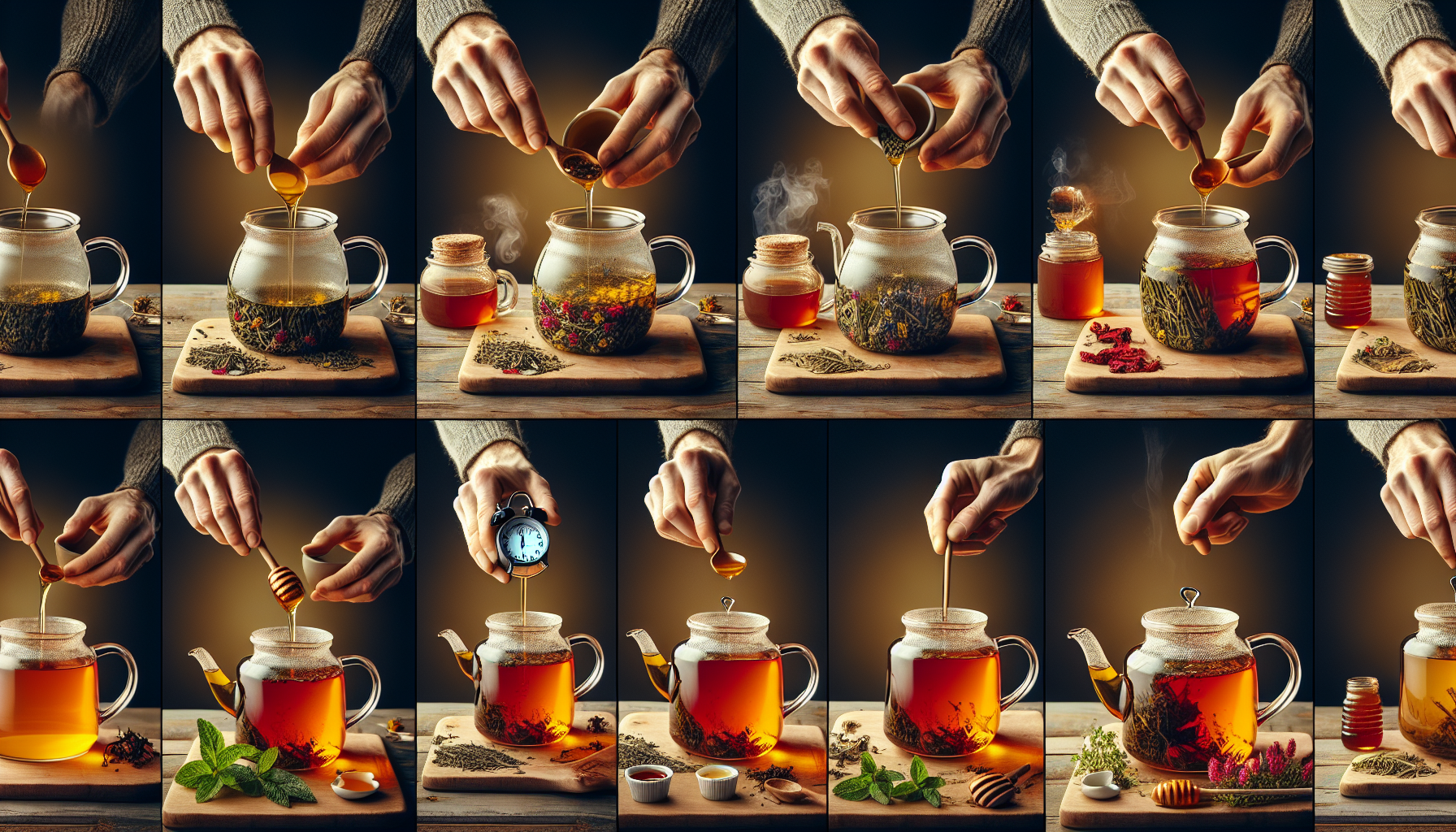
The art of brewing the perfect cup of herbal tea involves choosing the right blend, maintaining the correct hot water temperature and steeping time, and improving flavors with sweeteners or other ingredients.
Choosing Your Herbal Tea Blend
Choosing the right blend is the first step to brewing a delicious cup of herbal tea. Keep in mind your taste preferences, the time of day, and the health benefits you’re seeking.
Whether it’s a calming chamomile for nighttime relaxation or a refreshing peppermint to kick-start your morning, your perfect blend is out there waiting for you.
Water Temperature and Steeping Time
Once you’ve chosen your blend, pay attention to the water temperature and steeping time. While most herbal teas require boiling water, the steeping time can vary depending on the specific herb. Careful consideration of these elements will ensure your herbal tea is brewed to perfection.
Sweetening and Enhancing Flavours
Sweeteners or other ingredients like honey or lemon can enhance the flavor of your herbal tea. Experiment with different sweeteners and additions to find your perfect cup. Remember, the goal is to enhance the natural flavors of the tea, not to mask them.
Loose Leaf vs. Tea Bags: Which is Better?
The discussion comparing loose leaf teas and tea bags has been ongoing since the tradition of tea drinking began. While loose leaf teas provide a robust and flavorful experience, tea bags offer convenience and ease of use.
The Benefits of Loose Leaf Herbal Teas
Loose leaf herbal teas not only provide a fresher, more flavorful experience but are also more environmentally friendly. The use of whole tea leaves helps to maintain their natural oils and flavors, resulting in a fresher and more flavorful tea.
Plus, with less waste produced, loose leaf teas are a more sustainable choice.
When to Use Tea Bags
Tea bags, on the other hand, are a convenient option, especially when you’re on the go or don’t have the time for a full tea ceremony. They offer a quick and easy way to enjoy a cup of tea anytime, anywhere.
Pairing Herbal Teas with Food
Similar to wine, herbal teas can be paired with food to amplify the taste of both the tea and the meal. From morning to evening, there’s a perfect herbal tea to complement every meal.
Morning Herbal Tea Pairings
Starting your day with a cup of herbal tea not only provides a soothing start but also enhances the flavors of your breakfast. The right morning tea can enhance your breakfast, be it a classic toast and jam, a hearty omelette, or a sweet pastry.
Afternoon and Evening Pairings
In the afternoon and evening, herbal tea can be paired with a variety of foods, from spicy dishes to sweet desserts. Whether it’s a robust English tea to complement a spicy dish or a delicate chamomile to pair with a light dessert, there’s an herbal tea for every occasion.
Creating Your Own Herbal Tea Blends
Formulating your own herbal tea blends enables you to tailor your tea experience to your preferences and health requirements. From choosing your ingredients to perfecting the blending process, crafting your own herbal tea blend can be a fulfilling and enjoyable process.
Selecting Ingredients for Your Blend
Choosing the right ingredients for your blend is the first step in creating your own herbal tea. Whether you want a calming blend to help you relax after a long day, or a refreshing blend to perk up your mornings, the possibilities are endless.
Tips for Successful Herbal Tea Blending
Successful herbal tea blending requires a careful balance of flavors and a good understanding of the properties of each ingredient. From the balance of flavors to the freshness of the ingredients, there are many factors to consider when blending your own herbal tea.
Summary
In conclusion, the world of herbal teas is as diverse and exciting as it is soothing and therapeutic. Whether you’re a seasoned tea enthusiast or a curious beginner, there’s a herbal tea out there for everyone. So why not brew a cup today and experience the soothing relaxation that only a perfectly brewed cup of herbal tea can offer?
Frequently Asked Questions
What does herbal tea do for the body?
Herbal teas are packed with antioxidants that help combat free radicals and protect the body from damage. Studies have shown that certain teas, such as green tea, can boost the immune system, fight inflammation, promote cardiovascular health, and even prevent cancer development.
Who should not drink herbal tea?
Anyone taking Warfarin or other medications should not drink herbal teas, as they can increase the risk of severe bleeding.
Is Green Tea the same as herbal tea?
No, green tea and herbal tea are not the same. Green tea is made from the leaves of Camellia sinensis plant while herbal tea is made up of herbs, spices, and dried flowers.
What types of herbs are used in tea?
Chamomile, peppermint, ginger, hibiscus, echinacea, rooibos, sage, and lemon balm are some of the most popular herbs used in tea.
How do herbal teas differ from true teas?
Herbal teas are crafted from a range of plants, dried fruits, flowers, spices, or herbs, and contain no caffeine. They offer a variety of flavors such as peppermint, chamomile, and Rooibos, in contrast to the limited flavor options offered by true teas derived from the Camellia sinensis plant.
